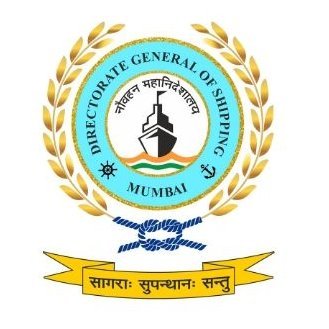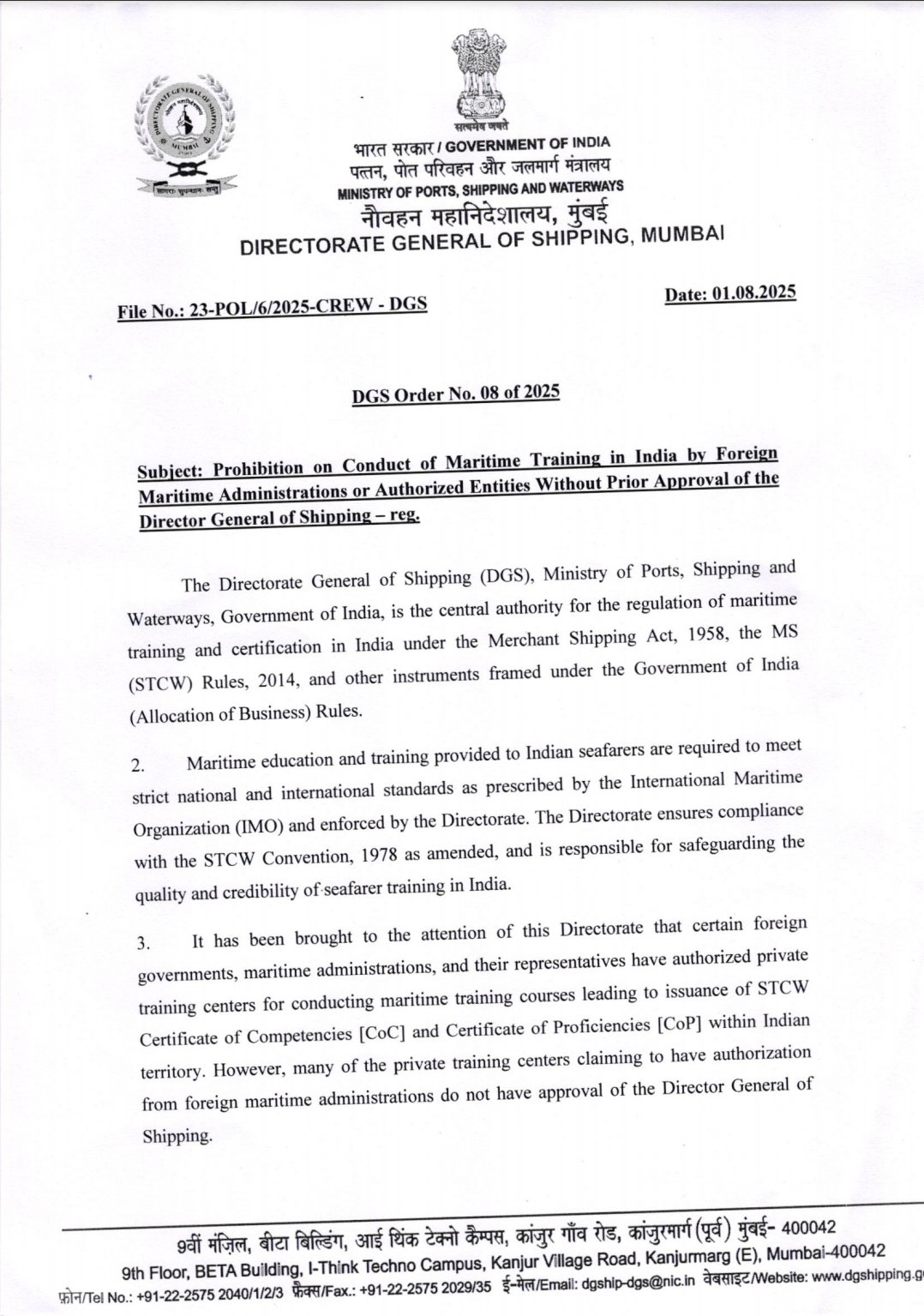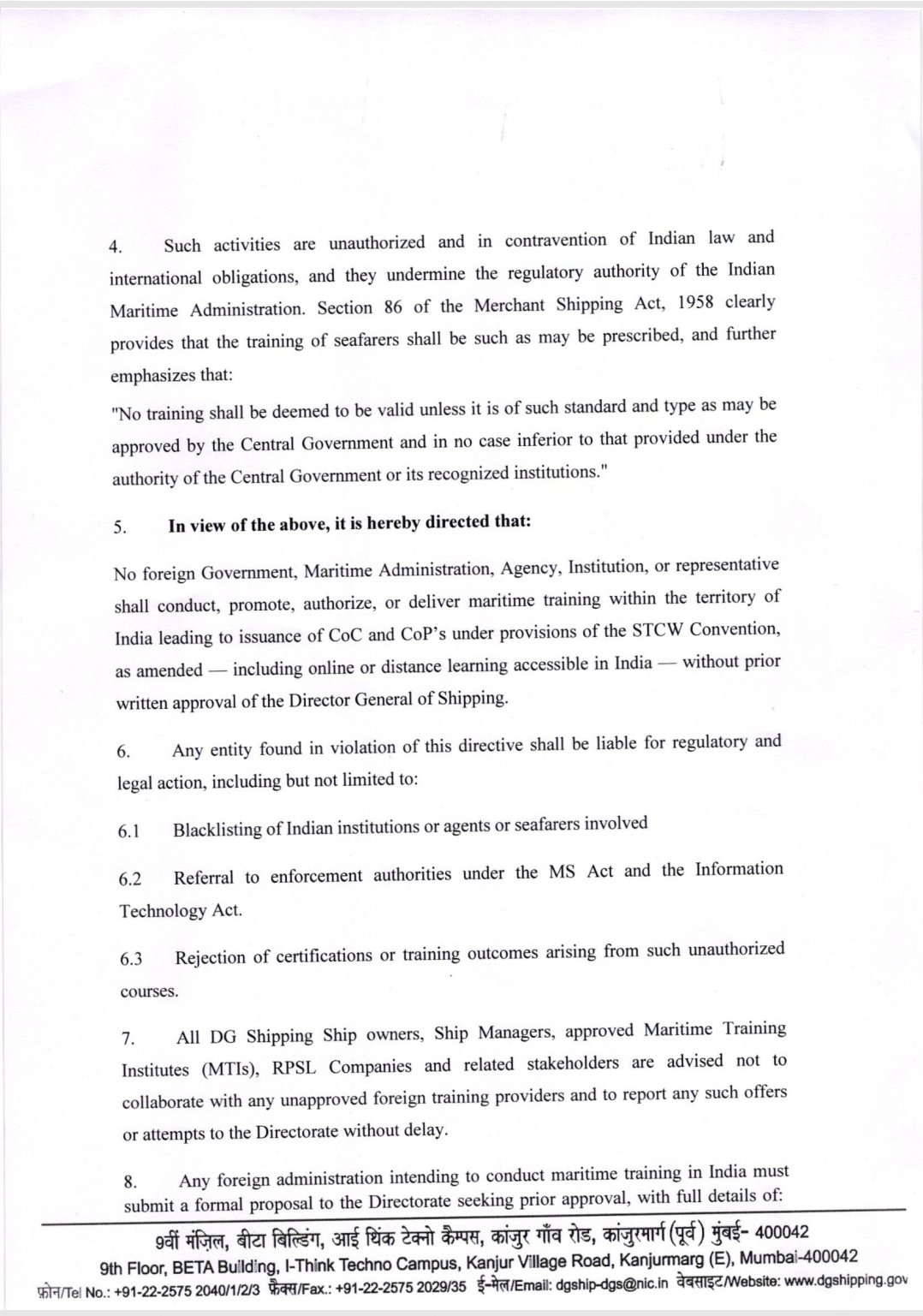
DG Shipping tightens oversight on Foreign Certificates of Competency held by Indian Seafarers
MUMBAI : In a decisive move to safeguard the integrity and credibility of maritime training and certification in India, the Directorate General of Shipping (DG Shipping), under the Ministry of Ports, Shipping and Waterways, has issued DGS Order No. 08 of 2025, prohibiting the conduct of maritime training in India by foreign maritime administrations or their representatives without prior written approval.
Simultaneously, DG Shipping has also rolled out a stringent Implementation Framework governing the recognition and usage of foreign Certificates of Competency (CoC) by Indian seafarers, in response to mounting concerns over fraudulent certifications, safety risks, and violations of international standards.
Foreign Training Without Approval Banned
The order unequivocally states that no foreign government, maritime administration, or agency may conduct, promote, authorize, or deliver maritime training—including online or distance learning—within India without express written permission from the Director General of Shipping. This prohibition applies especially to training programs leading to the issuance of STCW CoCs and CoPs.
The directive was prompted by reports that foreign administrations such as Panama, Honduras, Ukraine, and others have been authorizing private Indian entities to conduct training—often without official sanction from Indian maritime authorities.
Such activities, DG Shipping warns, violate Indian law and the Merchant Shipping Act, 1958. Any entity found in violation will face legal and regulatory action, including:
- Blacklisting of training institutions, agents, and seafarers
- Referral to enforcement under the MS Act and IT Act
- Rejection of training certifications arising from unauthorized courses
New Guidelines for Indian Seafarers Holding Foreign CoCs
To address misuse of foreign-issued CoCs by Indian seafarers, DG Shipping has implemented a declaration and verification framework:
Key Highlights:
- Mandatory Declaration:
Indian nationals holding a foreign CoC must declare it via an online form to DG Shipping, along with details such as validity, issuing country, and employment particulars. - Verification Protocol:
DG Shipping will verify the authenticity of these CoCs directly with the issuing foreign authorities. Suspicious or invalid certificates will trigger audits or inquiries. - Eligibility for Employment:
Indian seafarers can only work aboard foreign-flagged vessels using such certificates if the issuing country has a valid Memorandum of Understanding (MoU) or recognition agreement with India. - No Legal Protection for Undeclared Holders:
Seafarers using undeclared CoCs will not be entitled to protection under Indian maritime law. DG Shipping will not intervene in overseas disputes involving such cases. - Restrictions on CoC Upgrades:
Sea-time earned using an undeclared foreign CoC cannot be used for applying for upgrades to Indian CoCs or refresher courses unless pre-approved.
Non-Compliance Could Be Costly
Failure to comply may lead to blacklisting of the seafarer and punitive action against companies employing them. DG Shipping also urges Indian ship owners, RPSL companies, and Maritime Training Institutes to report any unauthorized training schemes or foreign affiliations.
A Move to Protect India’s Maritime Reputation
This dual initiative marks a significant step toward preserving the sanctity of India’s maritime workforce and aligning the country with International Maritime Organization (IMO) protocols. By curbing backdoor certification and unauthorized training, DG Shipping aims to uphold quality, transparency, and global confidence in Indian seafarers.
With this directive, DG Shipping reaffirms its commitment to enhancing maritime safety, eliminating malpractice, and strengthening India’s position as a trusted supplier of skilled maritime professionals to the global shipping industry.



